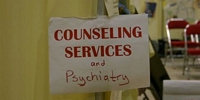If all the data received by our senses were stored in our memory, we would soon be overwhelmed. The subconscious mind sorts through the input, and retains only a fraction for long-term memory storage. Every second, the eyes absorb ten million bits of information, the skin takes in a million bits, and the ears receive one-hundred thousand bits. Of these millions of bits processed, only about forty of them reach the conscious mind. Data, that are not deleted, are sorted and filtered by the subconscious mind. Next, they are either sent to the conscious mind, or encoded for medium and permanent memory storage.
The active brain can "remember" things that actually did not happen, or that are not correct. Ask any police officer who has interviewed witnesses. The mind makes assumptions in order to link events. People "remember" words that are implicit or not stated, with the same probability as explicit words. Studies with fMRI (functional magnetic resonance imaging) have demonstrated that the same brain areas are activated during questions and answers about both true and false events. This may explain why false memories can seem so compelling to an individual reporting the events. Types of Memory
Remembering is the storing of memories, and the later recalling of them. It's a biological process that involves dedicated brain structures. When a memory is encoded; it is dismembered and handed off to different parts of the brain for storage. Getting all these pieces back together is an inaccurate process. Hence, RE-membering is not perfect. Knowing that memories are formed in different categories, and that they move between categories, can help in developing strategies for improving memory and learning. There are two broad categories of memory: non-conscious, and conscious. The latter includes short-term, and long-term memory.• Non-conscious memory, takes two forms. One of these, implicit memory, automatically stores experience and concepts, and plays a role unconsciously in affecting perception and behavior. These memories are the basis for forming an individual's view of society, and his or her place in it. The other form, muscle memory, plays a role in the mechanical execution of a series of motions, as in riding a bike or playing a musical instrument, learned through repetition over time. • Conscious short-term memory, is the working memory. It's a place for stuff that you need to hang on to for only a short time. Maintaining information for only a few seconds, it enables us to remember a current thought, and so, for instance, take part in a conversation, keep a lecture in context as it progresses, or maintain the thread of a story or movie.• Conscious long-term memory: Although stored in our unconscious mind, this memory is of the events and facts that we can consciously recall and verbally describe. It includes that of words, symbols, and general knowledge about our perception of the workings of the world. Information of a personal nature, something witnessed or experienced, is better remembered when associated with emotion.
The brain links information unconsciously. You can purposefully help to maximize this effect. As you perceive new input, match it as best possible to material already in your memory, by using images, sounds, key words, and concept maps. A vital ingredient for memory is reviewing, and it is effective only when done at specific times after absorbing the information. For instance after one hour, one day, one week, and six months.
The brain thrives on challenge and complexity, and its primary drive is survival. It needs to survive socially, economically, emotionally, and physically. The brain is pre-wired to learn and, if optimum conditions are not present, employees may learn to fear change in the workplace, and students may learn to fear subjects like math. It is the management of emotions that gives learners greater command over their learning. Overwhelming stress has a detrimental effect. Researchers have evidence that high stress experienced by a pregnant woman can distress the fetus, resulting in learning difficulties for the child later in life. Among infants and toddlers, high and chronic levels of stress can make learning more difficult, perhaps even shrinking the part of the brain associated with memory.
Tips to Remembering
Imagine that I recite to you a list to you of thirty items. I then ask you to write them down after I finish. You would remember things that are:• at the beginning of the list• UnUsUaL • repeated, repeated • at the end of the list
The remembering of the first and last items is helped by what is known respectively as their primacy and recency. Every study session has primacy and recency opportunities. If you study for one hour, then take a break, you get one of each. If you study for twenty-five minutes, take a short break, then study another twenty-five minutes, you get double the primacy and recency events. How great is that?
As mentioned earlier, memory is not stored in a single location in the brain. It is deconstructed and distributed all over the cortex. The emotional content is stored in the amygdala, visual images in the occipital lobes, memory of the source in the frontal lobes, and venue is stored in the parietal lobes. Remembering is actually an act of reconstruction.
Memory Decay, or loss of remembered events, is a natural phenomenon as new experiences displace existing memories. You can easily counteract this loss of learned material through periodic review.
A greater variety of input streams from eyes, ears, tactile, and emotion allow for more pathways to exist for dynamic reconstruction, thus creating richer memory. Multi-modal instruction makes a lot of sense. Accelerated Learning addresses the need.
To get a handle on just how unlimited our ability to learn is, multiply the number of neurons (10 billion) by the number of branch spines (10 million) by the number of dendrite spiny protuberances possible on each spine (100 million). The result indicates how many new connections are possible when learning. Using this size font, the answer is a "1" followed by zeros that extend for some 6.2 million miles. The capacity of our memory is virtually unlimited.



